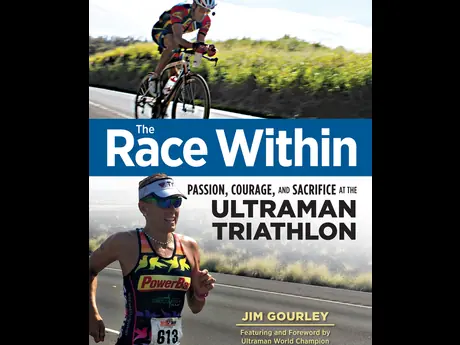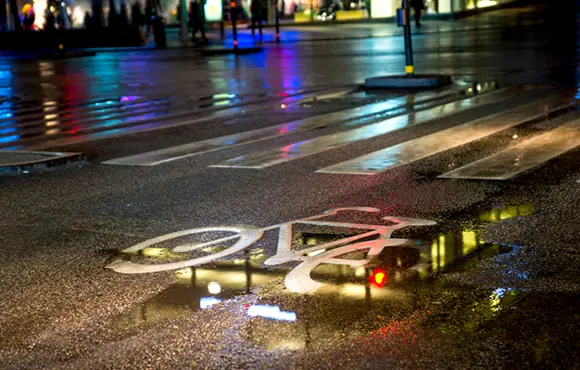
The Race Within: Passion, Courage and Redemption at the Ultraman Triathlon, is the story of one of the most tumultuous years in the history of the Ultraman, a 320-mile triathlon that travels all the way around the Big Island of Hawaii. Here's an excerpt from the book:
Valerie's relationship with the Ironman was unique from the very start. Before she did anything else, she began talking to the athletes who had competed in the previous two races or had expressed interest in signing up. She asked them all the same question: "If you could compete in the best race ever, what would it look like?" The answers she received inspired significant changes for the 1981 race. They also shaped her vision of what Ironman would become during its first decade, and through her example would constitute the foundation of what so many dedicated fans and athletes believe is the race's spiritual meaning. Ironman was less her business and she was its caretaker.
Yet her faith in what she was doing grew stronger after the 1981 race. She developed a strong empathy with the athletes and their motivations for coming to the race. "It was the experience of a lifetime for them," she says. "I made the Ironman motto 'more than a race.' And it was. It was a party. It was a vehicle to accomplish something. You got to know the personal lives of the competitors. It was compelling. Back in the early 1980s they were all considered kooks. I remember one athlete who came from the Midwest. He worked in an office and would train indoors for long hours during the winter. He came to Hawaii and had a blast at the race, but when he got back home everyone in his office just looked at him and asked, 'Did you get that out of your system?' It was so hard for many of them to be misunderstood like that. Even their families had a difficult time understanding what possessed them to do this. I developed a kind of mother instinct to take care of them."
That didn't mean it was all parties and chatting with international athletes. The race barely made enough money to stay afloat in its first three years on Hawaii, let alone enough to earn Valerie a living. Yet organizing the Ironman was a full-time job for her. She couldn't do anything else. She lived hand-to-mouth, and can't remember today how she got by during those lean years. There were also a few more lessons to learn in the art of race directorship.
More: 12 Must-Do Triathlons in 2015
The 1982 race produced one of the greatest moments in sports history, and the epochal turning point that secured Ironman's future. It would become another of those "?and the rest is history" milestones, with the messy details swept underneath.
In 1982 Anheuser Busch was looking for a way to grab attention for a new product, tentatively named Budweiser Light. The company explored the possibility of sponsoring the Ironman. In exchange, they wanted to capture footage of the athletes in the race for commercials. A man named Rodney Jacobs approached Valerie with a deal for a three-year, $15,000 contract. It was good money, but Wide World had already negotiated exclusive film rights. Valerie explained to Jacobs that they'd have to negotiate with ABC first. "But he was a smooth talker and told me, 'Don't worry about that. I know the guys at ABC. This is how the industry works. We'll make everything okay with them. Trust me.' And I did trust him. Big mistake," she remembers. Valerie took Jacobs at his word and signed the contract with Budweiser.
What ensued was a year of cat-and-mouse between Valerie and Jacobs. She asked him frequently if he'd gotten in touch with the people at ABC. He'd always respond that he'd "just missed them." It came to the week of the race, when everyone was arriving in Hawaii, before she finally pinned him down. Frantic, she demanded that he talk to Wide World of Sports producer Brice Weisman and sort things out. "And he said, 'Oh, Brice? Well, then! Just tell him I'm here.'" Again, she did as he asked. Weisman exploded when he got the news. To Valerie's dismay, she found out that Jacobs had a reputation for being two-faced, and he wasn't welcome at any of the major networks. She confronted Jacobs in no uncertain terms at a dinner with the representatives from Budweiser. "I looked right at him and said, 'You lied to me.' And he just smiled and said 'That's just business, baby.'"
- 1
- of
- 3
About the Author









Discuss This Article